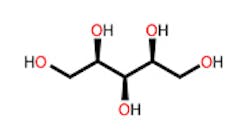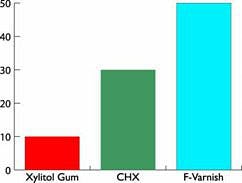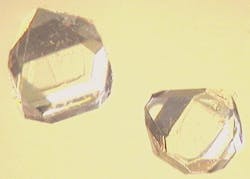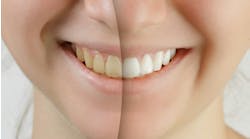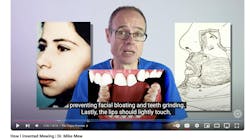We must look at the data in the studies, and not just headlines by media outlets. As always, we can always view new information to inform our clinical decisions.
Studies from the Cochrane Library
According to a recently published report in the Cochrane Library, there is little high quality-evidence that xylitol is beneficial against tooth decay. (1) The Cochrane website states its “contributors from more than 120 countries work together to produce credible, accessible health information that is free from commercial sponsorship and other conflicts of interest. Many of our contributors are world leaders in their fields—medicine, health policy, research methodology, or consumer advocacy—and our groups are situated in some of the world's most respected academic and medical institutions.” This new review has brought about a flurry of discussion on the benefits, or lack thereof, of xylitol. Others have criticized alarming headlines in the media.
The recent Cochrane review attempted to “assess whether or not xylitol, a natural sweetener used in products such as sweets, candy, chewing gum and toothpaste, can help prevent tooth decay in children and adults.” (1) The review included studies produced through August 2014. The authors concluded that “we found some low quality evidence to suggest that fluoride toothpaste containing xylitol may be more effective than fluoride-only toothpaste for preventing caries in the permanent teeth of children, and that there are no associated adverse effects from such toothpastes.”
In addition, the authors pointed out, “the effect estimate should be interpreted with caution due to high risk of bias and the fact that it results from two studies that were carried out by the same authors in the same population. The remaining evidence we found is of low to very low quality and is insufficient to determine whether any other xylitol-containing products can prevent caries in infants, older children, or adults.” (1)
Some studies show benefits, but more knowledge is needed
Another study available at the National Library of Medicine looked at the controversies that have long surrounded the use of xylitol. (2) It states that “xylitol studies have been criticized mainly by European researchers.” (2) It discusses the difficulty of performing trials with xylitol, and concludes that “xylitol is a useful adjunct to customary methods for tooth decay control and prevention.”
In a mother-child study conducted by Eva Söderling, the same author stated that xylitol chewing gum use reduced the mutans streptococci (MS) transmission and protects children from dental decay (figure 1). (3) In the xylitol group, the mothers chewed xylitol chewing gum about four times a day for two years. The use of the xylitol gum was started before the first primary teeth erupted. Salivary bacteria levels of the mothers were not reduced during the xylitol consumption period. The researchers highlighted that “xylitol did thus not reduce the children's colonization by reducing that of their mothers, but rather by affecting the transmission properties of the mutans streptococci.”(3)
A review in Clinical, Cosmetic and Investigational Dentistry noted, “still more research is needed on the mechanisms of action of xylitol, the clinical significance of xylitol resistance, and the effect of xylitol on the plaque–saliva distribution of MS . . . A minimum daily dose and frequency necessary for xylitol effects on MS, plaque, and caries occurrence should be calibrated.”(4) These researchers also believe the benefits of xylitol are worth further study.
Another study by Söderling states, “xylitol promotes mineralization by increasing the flow of saliva, an effect it has in common with all sweeteners. What is unique for xylitol is that it is practically non-fermentable by oral bacteria. Xylitol is known to inhibit growth, metabolism, as well as polysaccharide production of mutans streptococci.”(5)
Several studies have shown that xylitol, when used in high enough doses and frequencies, reduces dental plaque biofilm and the number of mutans streptococci. In a Cochrane review, xylitol has also been shown to reduce acute otitis media. (6) The reviewers said, “There is fair evidence to show that a daily dose 8.4 g of xylitol (two pieces of chewing gum, five times a day after meals for at least five minutes) can prevent acute middle ear infection (acute otitis media (AOM)) in children without acute upper respiratory infections attending day care centres,” concluding that “this meta-analysis is limited since the data arise from a small number of studies, mainly from the same research group.” (6)
Deadly to dogs
Xylitol sugar can be given in a syrup or chewing gum. A company called Xlear has numerous products contacting xylitol, educational materials, and a newsletter you can receive by email. Take a look at the website for more information. A word of caution: do not let your dog eat xylitol-containing products. Dogs can develop very serious and sometimes life-threatening conditions from xylitol ingestion. Xylitol’s ability to cause hypoglycemia in dogs has been documented for nearly 40 years, but a recent study has found that xylitol also can cause acute hepatic necrosis and acute liver failure. (7) Doses of >0.5 g/kg of xylitol may be hepatotoxic in dogs.
We must look at the data in the studies, and not just headlines by media outlets. As always, we can always view new information to inform our clinical decisions.
References
1. Riley P, Moore D, Ahmed F, Sharif MO, Worthington HV. Xylitol-containing products for preventing dental caries in children and adults. Cochrane Database of Syst Rev. 2015. doi: 10.1002/14651858.CD010743.pub2. http://onlinelibrary.wiley.com/doi/10.1002/14651858.CD010743.pub2/abstract.
2. Söderling E. Controversies around xylitol. Eur J Dent. 2009;3:81-2. http://www.ncbi.nlm.nih.gov/pmc/articles/PMC2676064/.
3. Söderling E, Isokangas P, Pienihäkkinen K, Tenovuo J. Influence of maternal xylitol consumption on acquisition of mutans streptococci by infants. J Dent Res. 2000;79:882-7.
4. Nayak PA, Nayak UA, Khandelwal V. The effect of xylitol on dental caries and oral flora. Clin Cosmet Investig Dent. 2014;6:89-94.
5. Söderling E. Xylitol, mutans streptococci, and dental plaque. Adv Dent Res. 2009;21:74-8. http://www.oralscience.com/en/documentation/education/Xylitol-Mutans-Streptococci-and-Dental-Plaque.pdf.
6. Azarpazhooh A, Limeback H, Lawrence HP, Shah PS. Xylitol for preventing acute otitis media in children up to 12 years of age. Cochrane Database Syst Rev. 2011;Nov 9:CD007095. doi: 10.1002/14651858.CD007095.pub2.
7. Dunayer EK. New findings on the effects of xylitol ingestion in dogs. Veterinary Medicine. 2006;December:791-97.
